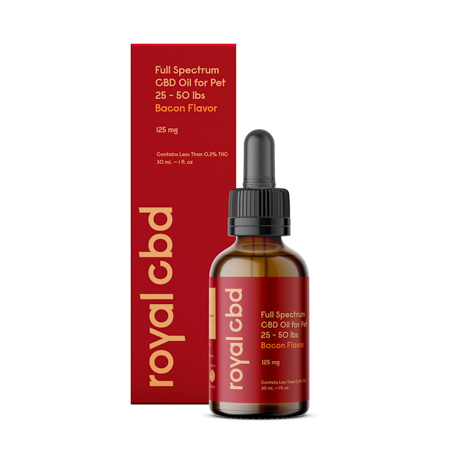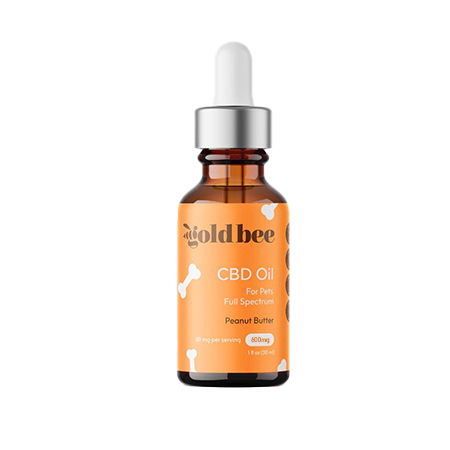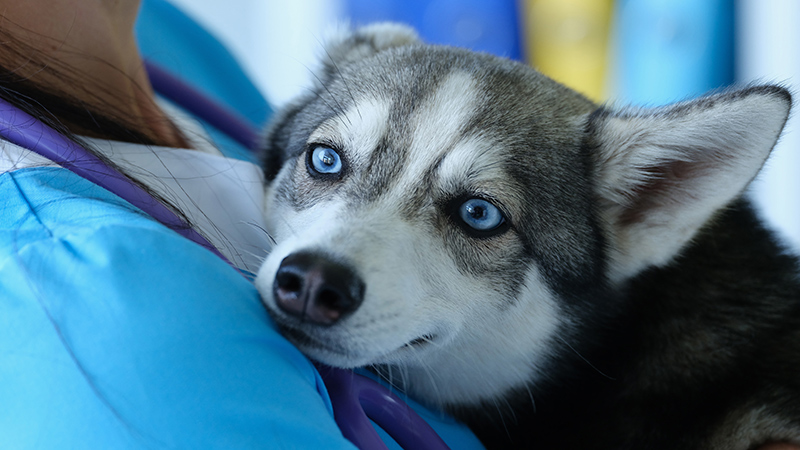What Can You Give a Dog With Bad Gas?

Are you wondering how to help your dog with nasty, recurrent farts? In this article, you’ll learn about the best natural remedies and techniques you can give a dog with excessive gas.
A dog’s fart can clear a room faster than a nearby explosion. One minute you’re both enjoying cuddles, and the next, your dog farts, and you raise the alarm for evacuation.
A little gas from time to time is nothing to worry about. Even humans fart occasionally, but if the gas turns into a chronic issue, this can indicate an underlying condition or, at least, the need to introduce dietary and lifestyle changes.
In this article, we cover the best natural dog remedies for gas, explain why your dogs may have recurrent, stinky farts, and when to see your vet.
Do Dogs Fart?
Yes, although most dogs don’t know what their farts are. They don’t understand the science behind passing gas, but they also don’t know when they are released from the body, even if they happen often.
Occasional gaseous emission from your furry friend is a normal and inevitable part of life.
Here’s what causes dogs to produce smelly gas.
What Causes Dog Gas?
As mentioned, passing gas is as natural for our canine companions as it is for us. Gas builds up in the digestive tract, and the only way to release them is to fart.
In essence, your dog’s farting is just a sign of brief discomfort and nothing beyond that.
But when your dog farts excessively, they might be eating their food too fast.
There are several reasons why dogs chew down rapidly on their food, from fear of other animals to being crazy about a particular type of food.
Dog parents often call this ‘devouring’ or ‘inhaling’ the food, which is the major reason behind non-dysfunctional farting.
As they rush through their food, they’re too much air compared to their normal capacity. Excess air is what causes a buildup of gas and leads to farting.
Your dog’s diet also plays a role in the frequency and intensity of their farting. Both healthy and unhealthy food can cause your dog to fart, so gasing isn’t always an indicator of a low-quality diet.
For example, if you feed your dog with gas-inducing vegetables on the side of their regular carnivore food, they’ll likely be gassy after dinner because of the large amounts of fiber.
While it’s still a healthy snack to give your food, overdoing it may cause frequent farting.
Most dog farts are normal and don’t pose a threat to their health. However, a normal amount of gas is a relative concept, depending on your dog’s breed.
Certain dog breeds are more likely to produce more gases than others.
What Are the Most Farting Dog Breeds?
Any dog breed can fart from time to time, but some dogs are more prone to being gasy on a regular basis. Breeds that are burdened with gastric issues include golden retrievers and German shepherds.
Boxers and pugs, which are considered brachycephalic dogs, are particularly likely to gas than other breeds.
There are plenty of ways to reduce farting in dogs, but some breeds will still produce excess gases despite your efforts.
The following breeds are known for their tendency to fart a lot:
- Boxers
- Beagle
- Doberman pinscher
- English bulldogs
- French bulldogs
- German shepherds
- Golden retriever
- Pitbulls
- Pugs
- Rottweiler
- German shepherds
Events that May Cause Your Dog to Fart

As a caring dog parent, you probably know a lot more about your dog’s farts than you’d like to. However, it’s important to know when farting is normal – and when it indicates pathological changes in your dog’s body.
Knowing your dog allows you to pick up the potential cause of alarming gases.
Here’s why it happens:
Sudden Dietary Changes
Switching from one type of dog food to another, or introducing new food to your dog’s diet, may seem harmless, but it can have a negative impact on your dog’s digestive system.
If you’ve just made a sudden change in your dog’s nutrition plan, this is certainly the cause of their excess flatulence.
Food Allergies and Sensitivities
If you slowly introduce a new diet to your dog and they’re still farting too much, this may stem from allergies to one of the ingredients. Common allergens and food sensitivities include soy, dairy, preservatives, wheat, and highly processed ingredients.
Eating Certain Foods
Some foods are harder for your dog to digest. Common risk factors for dog gases include peas, milk products, human food scabs, and vegetables such as brussel sprouts, broccoli, and cauliflower.
As your dog’s digestive system struggles to digest these foods, it releases gases more often than usual.
Low-Quality Diet
Not all dog foods are created equal. Some manufacturers make food that should be labeled as animal fast food.
Aside from a diet that is poor in nutrients, the increase in gas may be caused by discarded, spoiled food that your dog found and immediately gobbled up.
The troublesome farting shouldn’t last longer than a day or two. If the problem persists or your dogs show signs of illness, such as nausea, vomiting, bloating, and appetite, take them to the vet.
Gastrointestinal Disorders
Excessive gas could indicate a more serious medical condition, such as intestinal parasites, colon cancer, or irritable bowel syndrome (IBS). If none of the common causes of gas can be linked to your dog’s problems, check with your vet to receive an early diagnosis and treat the condition right away.
What Can I Give My Dog for Bad Gas?
There are many natural remedies you can give your dog for gas, from probiotics to CBD oil for dogs to massages and herbs that fight off increased farting.
Here’s what you can do to help your buddy.
Probiotics
Probiotics are known as the ‘good bacteria,’ – ones that promote optimal gut health and aid digestion. They also inhibit the growth of ‘bad’ bacteria, preventing problematic gases in your dog.
One of the best probiotics for digestive health in dogs is Lactobacillus. It staves off harmful bacteria that damage the gut while also helping your dog absorb the nutrients from their food more effectively.
Probiotics made specifically with dogs in mind are becoming a popular supplement among pet parents, especially with dogs that have sensitive stomachs.
They can easily help your dog enhance the performance of their digestive system and prevent gas buildup.
Massages
If your dog is currently struggling with increased farting, you can reduce the discomfort by giving them a massage.
Check your dog’s sides and abdomen for firm spots. Using the flat of your palm and gentle pressure, massage the problematic areas using circular moves.
Make sure not to press too hard; a nice, delicate massage should help relieve gas buildups and reduce anxiety associated with the discomfort.
CBD Oil
CBD oil is a hemp-derived extract that contains CBD (cannabidiol), minor cannabinoids, and terpenes. These compounds support gut health by interacting with the mammalian endocannabinoid system (ECS).
The ECS is the master regulatory network in humans and dogs. It promotes and helps maintain homeostasis (balance) between other systems and organs.
An optimized ECS ensures that your sleep cycles, pain perception, gut motility, immune responses, appetite, and fertility perform at their top level.
This system produces its own cannabis-like molecules. That’s why using CBD oil is so effective for many health conditions and symptoms that are considered treatment-resistant.
CBD supports healthy gut flora, improves movement in the bowel, reduces inflammation, and aids digestion by acting on the CB2 cannabinoid receptors and increasing the concentrations of your body’s natural endocannabinoids.
In essence, CBD is one of the few external tools that can support the ECS.
Best CBD Oils for Dogs with Gas
Although CBD is a versatile health supplement, the CBD market isn’t regulated by the FDA. This means there are many great brands that leverage the quality standards in the industry, but there are also an equal number of fly-by-night companies churning out mislabeled and dangerous products.
You need to make sure the CBD oil you’re buying for your dog comes from organic hemp, is extracted with CO2, and comes with batch-specific lab reports from an independent laboratory.
Running short on time? Below we recommend two brands that make top-shelf CBD oils for dogs at reasonable prices.
1. Royal CBD

Get 15% off all Royal CBD products. Use code “CFAH” at checkout.
| Pros | Cons |
|
|
Royal CBD is a premium manufacturer of CBD products for humans and dogs. The brand was established in 2018 by a group of biohackers and hemp advocates with a mission to raise the quality bar for other companies entering the CBD space. Since then, it has become a true CBD powerhouse that offers a broad range of full-spectrum and broad-spectrum CBD products.
The Royal CBD pet oil comes in two strengths: 250 mg (small and medium dogs) and 500 mg (large dogs). These are whole-plant extracts, so your dog can reap the benefits from the minor cannabinoids and terpenes supporting the therapeutic effects of CBD.
If your four-legged friend doesn’t like the flavor of natural CBD oil, these bacon-flavored tinctures will be game-changers.
Alternatively, you can give your dog CBD treats and choose from one of the three formulas dedicated to specific health needs (Active, Calm, and Hearty).
2. Gold Bee

| Pros | Cons |
|
|
Gold Bee is a true maverick in the CBD space. Prior to 2019, the company has been making superfoods, but shortly after, it made a transition to the CBD market. Gold Bee still includes some of its staple superfoods in the CBD line, such as raw honey and organic MCT oil.
The Gold Bee CBD pet oil is available in only one potency, delivering 600 mg of CBD per bottle. This translates into 20 mg of CBD in every milliliter, making it enough for large dogs to relieve gases. If you own a smaller pup and don’t have problems measuring out its dose with this strength, the Gold Bee CBD oil will make for a few months’ worths of supply.
Similar to Royal CBD, Gold Bee tests its products in a third-party laboratory for quality and safety, including the results for common contaminants, such as pesticides, heavy metals, mycotoxins, and solvents.
Gas-X
Gas-X is a popular brand name for simethicone. It’s generally considered safe for dogs, but you should always consult your vet before giving your dog medicine. The vet will help you with determining the right dosage and space out the timing between Gas-X and other medications to avoid drug-drug interactions.
Keep in mind that Gas-X won’t cure your dog of excessive farting. It works by facilitating the process of removing gas while making it easier to pass.
Long story short, your dog will still fart, but it will feel better than without Gas-X.
Tums
Yes, Tums is another safe remedy for dogs, but it’s not as effective as CBD oil or massages. Calcium carbonate is the active ingredient in this supplement; it works by reducing the acidity in the stomach.
While Tums works well for humans, dogs have a faster digestive system, meaning the medicine will be flushed before the effects take hold.
Yogurt
Some pet parents use yogurts to reduce farting in dogs because they contain many probiotics that can support gut health.
While yogurts can provide relief from gas, some dogs are sensitive or allergic to dairy, which can make farting even worse — or trigger the dog’s diarrhea.
If your dog handles yogurt well, you can certainly use it to help with the problem. One tablespoon of yogurt is a reasonable amount for a large dog. For smaller breeds, use teaspoons, providing 1-2 tsp of yogurt daily.
It’s important that you slowly introduce yogurt if you’ve never used it with your dog before, especially if they’re already experiencing digestive issues. Doing so will allow the dog to reap the benefits of probiotics without the risk of irritating the gut.
Ginger
Ginger is a popular remedy that humans use for stomach pain, bloating and gases. It can work with your pup, too. You just need to adjust the dosage to their size.
Give your dog powdered or raw ginger at a rate of 10-25 mg per pound of body weight. Ginger can feel hot on the palate, so the best way to administer it to dogs is to sprinkle some powdered ginger on their food.
How to Prevent Gas In Dogs
Preventive methods are paramount for maintaining optimal digestive function in your dog. Here’s what you can do to make sure the gases are maintained in the optimal range:
Encourage the Dog to Slow Down Eating
Wolfing down food is common in dogs. Some breeds eat their food as if that were some form of competition. Doing so introduces a lot of air, causing farts later on.
It’s a good idea to divide your dog’s daily portions into smaller ones and feed them throughout the day to control their eating behavior.
There are also special slow-feed dog dishes that come with a raised center, preventing your dog from swallowing large portions of food.
In addition to controlling the pace at which your dog consumes their food, keep them active and provide regular exercise. Stimulating physical activity will help improve digestion and reduce farting.
Manage Their Weight
Overweight dogs are more likely to gas regardless of their diet. Weight management through nutritious food and regular exercise are essential for preventing gas.
If your dog is particularly overweight, start with regular walks and other low-impact exercises.
Going low and slow is always better than rushing, especially when it comes to pets.
Feed Your Dog a High-Quality Diet
When you’re choosing a dog food brand, ask yourself if it has the right ingredients to provide your dog with essential nutrients.
A high-quality dog diet should consist of nutrient-dense ingredients, such as meats, eggs, fruits, and selected vegetables.
Steer away from processed foods and ingredients that aren’t biologically appropriate for your furry friend.
Introduce a New Diet Slowly
Canine stomachs are sensitive to dietary modifications. If your dog is on a low-quality diet, and that’s the cause of their farting, you should slowly transition them to high-quality food.
As you change your dog’s food, observe how their body responds and look at their poop to decode if their tummy is happy with the new food.
When to See the Vet with a Farting Dog

Some dog farts aren’t normal. If your dog has frequent gases that cause pain, diarrhea, or vomiting, it’s a sign you need to take the dog to your vet. The vet will evaluate your dog’s overall health and provide a diagnosis.
Bloating
Bloating can be mistakenly diagnosed as a side effect of the gas, but bloating from farting is different from actual bloat or gastric dilatation-volvulus (GDV).
GDV is a potentially lethal condition that attacks a dog when the stomach fills with gas and begins to twist. This results in a shortage of blood and oxygen in the rest of the body – causing the belly to swell.
Some dogs are more likely to bloat than others, and your vet may recommend dog gastropexy to prevent the condition. Gastropexy is a surgical operation that stitches the stomach to the abdomen’s wall so that it can’t be twisted by GDV.
Bloating dogs usually become anxious, pace, and drool, trying to vomit. You may also hear whining if you gently touch their stomach.
The above symptoms are different from those of a farting dog with a slightly bloated stomach.
The best you can do to prevent GDV is to take your dog to the vet as soon as you notice signs of bloat.
Hemorrhagic Gastroenteritis
Hemorrhagic gastroenteritis (HGE) is a condition that occurs suddenly. It can happen to all dogs, but it’s especially prevalent among small dog breeds. HGE doesn’t have an established root cause, so there are no recommendations for preventing it.
The main indicators that your dog has HGE are vomiting and loose, bloody stools. Because this condition affects the digestive system, symptoms also include farting.
If you notice blood in your dog’s stool, take the poop sample to your vet immediately. Treatments for HGE are centered around providing fluids and administering antibiotics.
Dogs that have received an early diagnosis have a high chance of a successful recovery.
Key Takeaways on the Best Home Remedies for Dogs with Gas
Feeding your dog a high-quality diet and taking care of a sufficient amount of exercise are the two best methods to prevent gas.
If your dog farts regularly, and these farts are not only repelling but also followed by any distressing symptoms, you should consult a holistic veterinarian.
From there, you can agree on one or more of the aforementioned remedies for dogs with excessive gases.
Adding CBD oil, ginger, and probiotics to your dog’s routine can significantly improve their digestion and reduce abnormal farting.
We hope this article has given you a nice arsenal to fight off smelly farts and maintain optimal gut health in your four-legged friend.